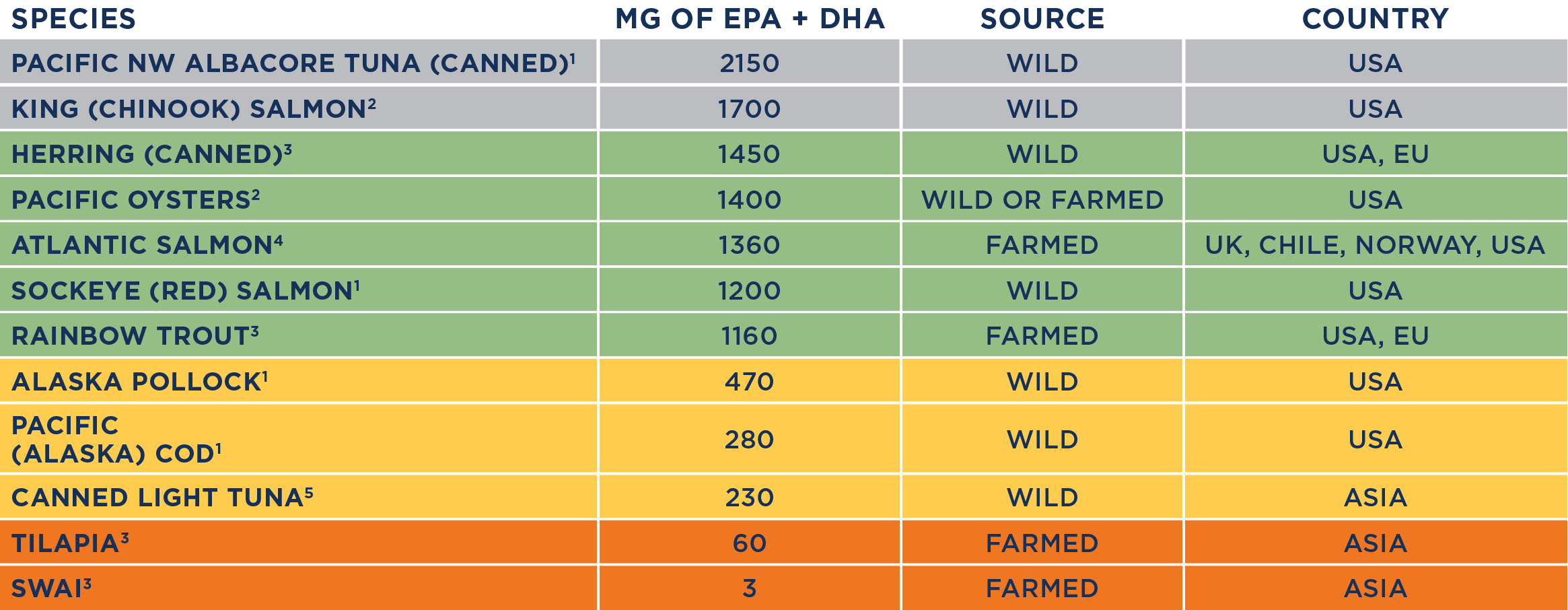Eating seafood is a key part of a balanced, healthy diet
Historically, seafood used to be a much larger part of our diet, but most Americans no longer regularly eat it. In 2012, we ate on average a whopping 212 lbs of red meat and poultry, but ate only 15.5 lbs of seafood per person in 2015. In fact, what seafood we do eat is mostly imported farmed shrimp, accounting for nearly 25% of our years’ seafood meals. This farmed seafood has very little Omega-3 content, may not be grown with ethical labor practices, and may be tainted with antibiotics illegal for U.S. use.
Wiley’s Finest is a leader in EPA & DHA Omega-3 supplements sourced from sustainable seafood. We believe you should both eat seafood regularly and take Fish Oil supplements to get an optimal intake of Omega-3. As a thought leader in sustainable fishing,
we recommend consumers make nutritious seafood choices with sustainability as a goal. Choose either wild Alaskan seafood, seafood that is MSC certified, or from reputable brands which provide detailed information on traceability & country of origin.
The large variability in Omega-3 content in seafood species and preparation type means paying attention to the species, country of origin, and brand of seafood is important. Wild fish typically has more nutrients than farmed, especially healthy Omega-3 fats. A key feature of a high quality Fish Oil supplement is not having to guess at the contained Omega-3 content. Our supplements indicate the amount of EPA & DHA Omega-3 per serving right on the front of the package so consumers can make an informed choice.



